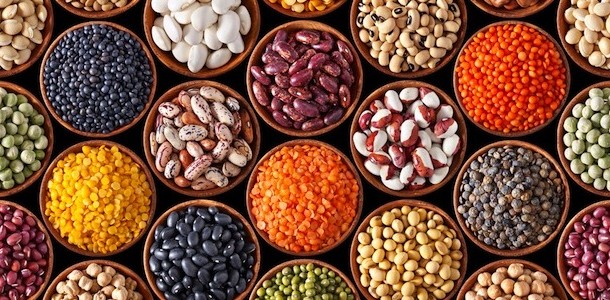Summer is flying by, and you may have been noticing an abundance of fresh, in season, delicious produce at our local grocery stores and farmer’s markets the past couple months. In the face of the summer season, you might start to hear the word “superfood” get thrown around more. Heck, maybe you’ve been hearing it regardless of the season. Whatever the case, today we’re going to look at superfoods: what they are, what kinds of superfoods you’ll see in the markets. and some recipe ideas on how to incorporate them into your day to day routine.
To start: what is a superfood? Fundamentally, superfoods are foods that are rich in vitamins, minerals, fiber, and antioxidants. Frequently, you will also see foods that are rich in healthy fats and phytochemicals. Each of these have a special role in the body that provides specific health benefits that help the body function in health. IF you look up lists of superfoods, you will frequently find extensive lists of a diverse array of fruits, vegetables, and some animal products.
When it comes to what kinds of superfoods you will see in the markets this summer, there are so many available! We don’t have time to go over everything here, but here are some great Michigan grown fruits and veggies that are nutrient dense and delicious too (I promise).
Blueberries: Probably one of my personal favorites! These small berries pack quite the punch. They are rich in vitamin C, vitamin B6, folate, potassium, and fiber. They also have many minerals including iron, calcium, and magnesium, and are phytonutrient rich. Blueberries have been found to help with: maintaining bone and skin health, lowering blood pressure, managing diabetes, protecting against heart disease, improving mental health, and facilitating healthy digestion and weight loss.

Wanna try something new with Blueberries? Check out these recipes here:
Cauliflower: This may seem shocking, but cauliflower is actually ridiculously good for you. Sporting such titles as, “cancer fighting”, “heart and brain health boosting”, and “anti-inflammatory powerhouse”, cauliflower is worth taking seriously. It is rich in choline, which is essential for brain development, and the glucosinolates in cauliflower can help protect the lining of your stomach, which promotes healthy digestion. Rich in vitamins C, K, and E, cauliflower also has a diverse profile of important minerals, antioxidants, and phytonutrients. Definitely a worthy addition to any dinner plate!

Cauliflower is super diverse in what it can do for you in the kitchen…check these recipes out:
19 Of the World’s Best Cauliflower Recipes
Asparagus: Okay, despite what you may think about the after-effects of eating asparagus (ahem, smelly pee, ahem), there are actually a number of pretty cool perks for eating this green spear shaped vegetable. Right off the bat we see an abundance of vitamins including A, C, E, K, and B6. It is rich in many minerals, from iron to calcium, and it is rich in glutathione, which has been shown to help break down carcinogens and free radicals. As a diuretic, asparagus is helpful in helping to rid the body of extra salts and fluids. This can help prevent things like urinary tract infections. Lastly because it is rich in fiber it helps keep the digestive tract healthy. That’s a lot going on for a teeny little vegetable!

Asparagus can be much for than limp boiled piles of mush…I promise:
Asparagus Recipes Worth Trying
Watermelon: Watermelon…believe it or not, but watermelon is a fruit that you can feel pretty good about eating. With high levels of vitamin C and lycopene, both powerful antioxidants, watermelon has a lot to offer. It also has a rich amino acid profile, with benefits from helping fight diabetes to facilitating a quick post workout recovery. When it comes to lycopene, oftentimes tomatoes are thought of as the heavy hitters of the lycopene world, but watermelon actually has 1.5 times as much lycopene as tomatoes. And with that comes 1.5 times more opportunities to reduce cholesterol and cardiovascular disease. Add to it all the other nutrients including potassium, magnesium, vitamin A, B vitamins, and it’s hydrating nature (it’s 92% water!), watermelon is a sweet treat worth having.

I’ll bet you didn’t know Watermelon had options… but yes, there are many things you can do with Watermelon:
20 Delicious Summer Watermelon Recipes
Okay, so here’s the thing. We may have spent the bulk of this article talking about “superfoods”, and all these amazing benefits of some relatively common fruits and veggies, but the reality is that pretty much every fruit and vegetable has some sort of nutritional benefit. And while it is laudable to shoot for foods that top the charts of nutritional density, eating a well rounded, diverse, and fun (yes, I said fun) diet is always going to win out over eating a diet that is “right”, but you hate and have zero fun with. So! That being said, do your best to keep your diet out of the canned/bagged/boxed category, and you’ll be reaping the benefits of a nutrient rich and dense diet in no time.
Happy Eating Everyone!

